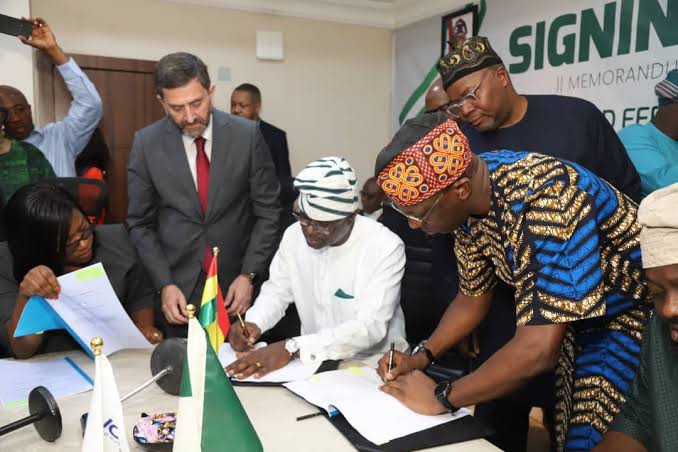The Lagos State Government (LASG), on Monday, signed a Memorandum of Understanding (MoU) with the Jospong Group of Companies for effective and efficient waste management in Nigeria’s sprawling commercial city.
Mr. Tokunbo Wahab, Commissioner for environment and water resources, (who signed on behalf of the state government).“This partnership with the Jospong Group, a leader in environmental and waste management services in Africa, represents a great leap forward in our commitment to enhancing the quality of life for all Lagosians through effective waste management,” said
According to him, the challenges of solid and liquid waste management in Lagos are well documented. He said the partnership was about a shared vision for a cleaner, healthier, and more sustainable Lagos.

“Lagos, with its vibrant population, bustling markets, and dynamic industries, generates substantial amounts of waste that require innovative, sustainable management solutions,” he said.
The Commissioner stressed further that, the collaboration with the Ghanaian firm will focus on technology, advocacy, enforcement, and the promotion of circular economy innovations such as recycling, composting, reuse, and waste-to-energy projects.
According to him, the state will leverage the partnership to develop integrated solid and liquid waste management facilities to meet the current needs of Lagos and also anticipate the demands of the growing population.
“These efforts are crucial for reducing the environmental side effects of waste, creating jobs, and fostering sustainable development in Lagos,” he said.
Joseph Agyepong, CEO, Jospong Group, said that the problem of environmental sanitation was not a mere matter of convenience; rather, it’s a fundamental human right and a cornerstone of public health.
“Yet, regrettably, millions of our fellow citizens continue to suffer due to inadequate access to infrastructure, proper sanitation facilities, and water treatment facilities,” he said.
Agyepong said the group would distribute about 2000 tricycles to PSP operators in the waste collection and management ecosystem.
According to him, the company would not be involved in direct waste collection from residences, as its role would be limited to managing waste collected by the PSP operators.
“The pride of the partnership was that it was being carried out by Africans, just as he solicited the support of all stakeholders in the sector. He submitted.
Olaitan Ibrahim Akano